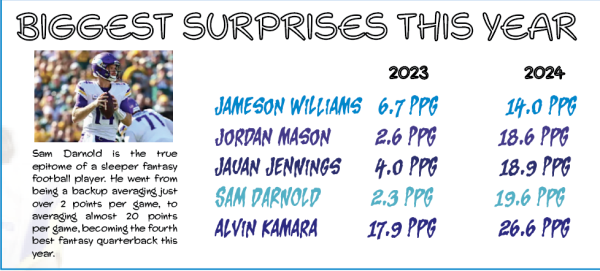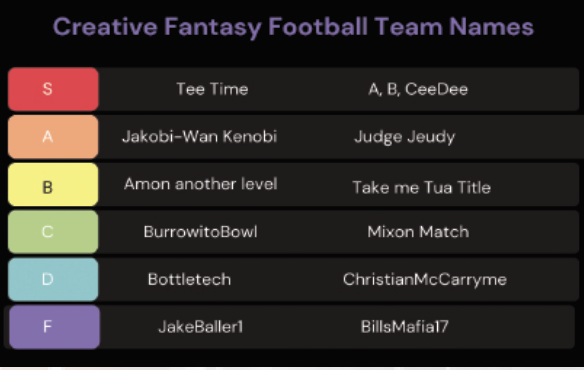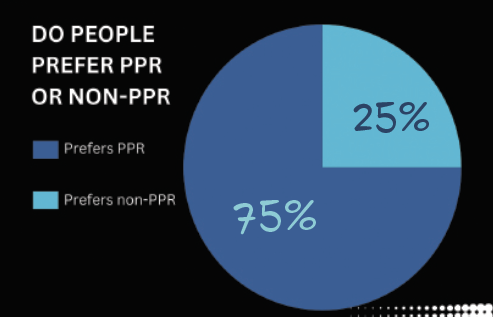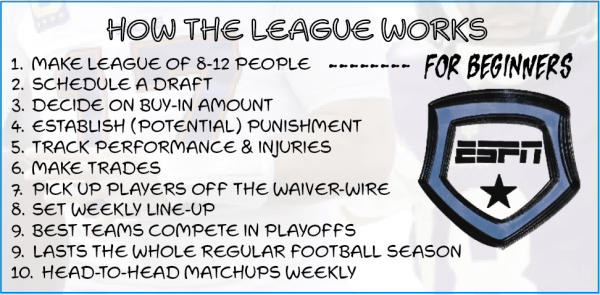Fantasy football is a roller coaster of emotions: from your first-round pick getting a season-ending injury, to the player you just picked up on waiver wires becoming a league winner, fantasy football is an unpredictable yet exciting journey.
There are a variety of formats that leagues can use to distribute players. Leagues with some sort of traditional drafting component typically utilize a snake draft, in which the order for picking reverses each round. So the player with the first pick in the first round would have the last pick in the second round, and then the first pick again in the third round. This pattern continues for the entire draft.
“Those who typically succeed are the people that are always on the waiver wires and updating their roster,” Cormac White said (’25). “As someone who finished last, I didn’t put enough time in, but I think most people edit their team and do research for about 15-20 minutes a week.”
The most popular is the redraft, where each player drafts a completely new team every year. This system fosters a more exciting, unpredictable league, and prevents individual players from dominating year in year out with the same players. A redraft league typically includes eight to twelve people, and each person drafts a team made up of fifteen to sixteen players, including a defense and kicker.
Contrary to a redraft, in a dynasty draft each person carries over their players from the prior season. Players can be retained by one team indefinitely, and rosters are typically larger than those from a redraft league. The draft before the season consists of the incoming NFL rookie class, similar to the real NFL draft.
Lastly, in an auction draft each person has a set dollar amount to spend throughout the draft. Each NFL player is available on the auction block, and eventually goes to the highest bidder.
Leagues will often have incentives to keep league-mates active week to week. The two most common incentives are creating a money pool for the winner and/or a punishment for the loser.
“I ended up winning the first round [of playoffs] marginally and eventually went on to dominate in the finals, partially due to my team exceeding expectations, but mostly because my opponents had extremely unfortunate weeks in terms of their teams’ performances,” Rohan Bhatt said (’27)
In a punishment league, league-members will decide on a punishment for the last-place finisher at the beginning of the season. Once the season plays out, the losing member has to complete this punishment. Sophomore Kavan Zia, a last-place finisher from last fantasy football season discusses the extremity of his punishment.
“I kind of just dealt with [my punishment]. It was embarrassing at first but I got used to it,” Zia said.
For Zia, this punishment was a very uneven haircut on the sides and back of his head.
In a competitive league, winning requires effort and time. Researching, drafting a team, proposing trades, claiming players off of the waiver wire, setting a starting lineup to win your weekly matchups are steps needed to give yourself the best chance of winning.
Former league winner and Paly Junior Vinay Shah talks about his strategy and motivation.
“I like to say I put in an hour a week in research on who to pick up in the waiver wire, and on possible trades to make,” Shah said. “I would send out at least three trades a week, my mentality was you miss one hundred percent of the shots you don’t take, and I did not want to do the punishment so I would take any chance to improve my roster.”
Sophomore Rohan Bhatt, another league winner, reflects on what led to his success.
“I spent around 30 minutes a week, but also around an extra couple hours when you take the draft and draft prep into account,” Bhatt said. “Frequent check ups plus having a clear draft strategy are the two must do’s as a fantasy manager. Without these two things, it will be quite hard to win your league.”
Success in fantasy football is about consistency and effort throughout the season. Paly senior Cormac White emphasizes this point, noting how essential it is to stay active.
“I think it takes discipline because those who typically succeed are the people that are always on the waiver wires and updating their roster,” White said.
Despite this understanding, White admitted he didn’t invest enough time last season.
“As someone who finished last, I didn’t put enough time in, but I think most people edit their team and do research for about 15-20 minutes a week,” White said.
White’s downfall illustrates how even a small time commitment can make the difference between winning and losing.
Senior Milo Sabina echoed White’s sentiment for success.
“Dedication, commitment, and hustle,” Sabina said.
Sabina spends around 30 minutes a week looking up stats and reviewing NFL games to inform his decisions, but despite the effort, he also finished at the bottom of his league.
“I think the biggest mistake was not adjusting my strategy soon enough. You really have to stay on top of things,” he added.
Engagement throughout the season is critical, as Bhatt and Shah’s success shows. Both of these past winners knew that winning isn’t just about the draft; it’s about managing your team every single week. Regularly making waiver claims, proposing trades, and fine-tuning lineups are all crucial strategies that separate top-tier managers from the rest of the pack.
However, no amount of preparation or strategy can prevent the many challenges that arise throughout a fantasy football football season. Uncooperative league-mates, unpredictable players, and injuries can thwart any fantasy team in its journey to a championchip.
There are endless possibilities as to what will happen throughout the season to each and every player: a breakout rookie that no one had on their radar, a star player who refuses to play due to unresolved contract negotiations, a first round pick sustaining a season ending injury in week 1, ect. There are no guarantees in Fantasy Football.
Just last season rookie wide receiver Puka Nacua ended the year as the fourth best fantasy wide receiver despite going undrafted in most leagues. Justin Fields on the other hand, who some thought could be the number one fantasy quarterback coming into the season, ended the year ranked in the bottom half of all quarterbacks. This would make him a solid backup at best. In addition, player performances vary week to week. A player may score triple their expected points in one week, and then score almost zero the next. This is how some fantasy managers are able to win games, even when they are overmatched by their opponent. This was the case for Bhatt in the first round of the playoffs.
“I ended up winning the first round [of playoffs] marginally and eventually went on to dominate in the finals, partially due to my team exceeding expectations, but mostly because I spent a good amount of time preparing for the season and therefore ended up with a better draft than most of my league mates,” Bhatt said.
Fantasy football is played for many reasons, and on many different levels. Some people play fantasy football to stay in touch with their friends. Others play for the chance to win money, or to see one of their friends go through the embarrassment of a punishment. Maybe they play to stay more invested in the NFL season, or because they are forced to play in their family league.
At the end of the day, fantasy football is more than just a hobby—it’s a blend of preparation, strategy, and unpredictability. Whether you’re playing for pride, money, or just to avoid an embarrassing punishment, there’s no guarantee that hard work will pay off in the way you expect. But, as Sabina, White, and many like them have learned, effort is non-negotiable if you want a chance at the top spot. And after all, there is always that slim chance that the benchwarmer you auto-drafted in the 14th round becomes the one to carry you to victory — or at least, save you from a humiliating haircut.










